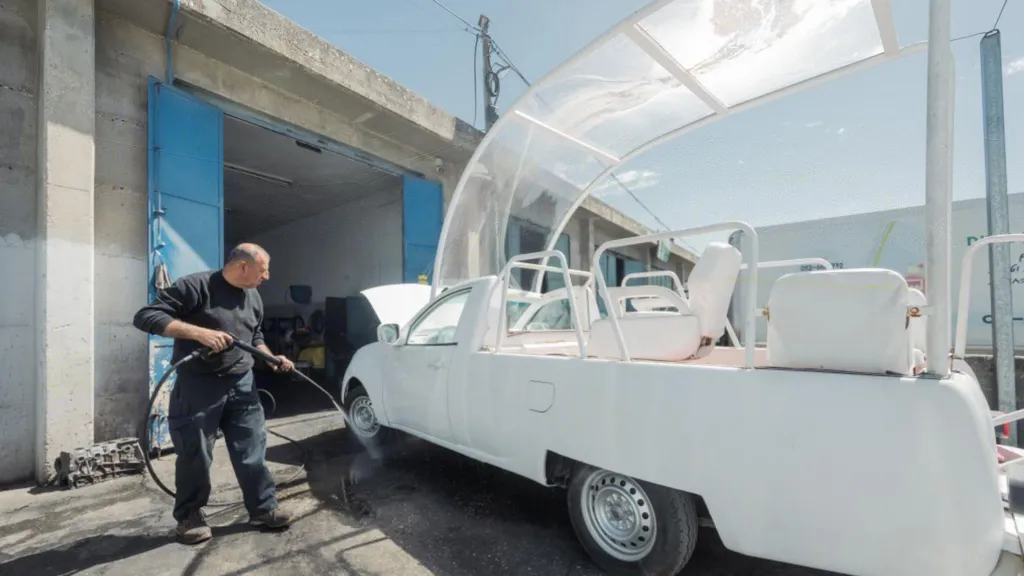Prior to his death, Pope Francis donated the popemobile he used during his visit to Bethlehem in May 2014 to be turned into a mobile clinic to assist children in the Gaza Strip.
The initiative was personally entrusted by the late pontiff to Caritas Jerusalem to respond to the grave humanitarian emergency in Gaza, where nearly 1 million displaced children live without access to food, clean water, or basic medical care amid the conflict with Israel.
However, ongoing border restrictions, including the sealing of the Rafah crossing between Egypt and Gaza, have prevented the vehicle, which was refurbished with essential medical equipment, from reaching its destination.
“We are still working in coordination with government agencies to ensure the popemobile enters Gaza. But the borders remain closed, and in my opinion, it will not be possible in the near future,” Harout Bedrossian, press officer for Caritas Jerusalem, confirmed to ACI Prensa, CNA’s Spanish-language news partner.
Bedrossian indicated that while some humanitarian aid is entering, “it is controlled by military distribution points” and is not effective as the situation remains “very chaotic.”
One of the main problems facing Caritas on the ground is the shortage of permits issued by the Israeli government to enter Gaza: “Obtaining permits to enter Gaza from Israel is a very arduous and lengthy process. From Egypt, it is a little easier, but as I said, all borders are currently closed.”
Humanitarian aid to the population of Gaza is trickling in, but not without serious problems that have even led to bloodshed in recent days, according to authorities in the Gaza Strip.
According to local observers, Doctors Without Borders and the Red Crescent, Israeli soldiers fired on a Gaza Humanitarian Foundation (GHF)-run aid distribution center, killing at least 31 people. However, the GHF denied this report and asserted that the aid was distributed without incident.







